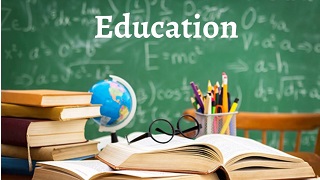Blog Details
Topics Title: What does education mean? 0
Publisher Name: Md. Sazzadur Rahman
Published Date and Time: 2022/04/20 01:16 AM
Category Name: Education
Number of Views (1351)
Like (0)
Number of Comments (0)
Share on Social Media:
Education is the process of facilitating learning, or the acquisition of knowledge, skills, values, morals, beliefs, habits, and personal development.[1] Education originated as transmission of cultural heritage from one generation to the next. Today, educational goals increasingly encompass new ideas such as liberation of learners, critical thinking about presented information, skills needed for the modern society, empathy and complex vocational skills.
UNESCO defines three main learning settings.[2] Formal education takes place in education and training institutions, is usually structured by curricular aims and objectives, and learning is typically guided by a teacher. In most regions, formal education is compulsory up to a certain age and commonly divided into educational stages such as kindergarten, primary school and secondary school. Nonformal learning occurs as addition or alternative to formal education.[3] It may be structured according to educational arrangements, but in a more flexible manner, and usually takes place in community-based, workplace-based or civil society-based settings. Lastly, informal settings occurs in daily life, in the family, any experience that has a formative effect on the way one thinks, feels, or acts may be considered educational, whether unintentional or intentional. In practice there is a continuum from the highly formalized to the highly informalized, and informal learning can occur in all three settings.[4] For instance, homeschooling can be classified as nonformal or informal, depending upon the structure.
Related Post/ Suggested Post
 Publisher Name: Md. Sazzadur Rahman
Published Date and Time: 2022/04/20 01:16 AM
Publisher Name: Md. Sazzadur Rahman
Published Date and Time: 2022/04/20 01:16 AM
 Publisher Name: ${10000441+10000482}
Published Date and Time: 2024/09/26 06:08 AM
Publisher Name: ${10000441+10000482}
Published Date and Time: 2024/09/26 06:08 AM
 Publisher Name: ${10000441+10000482}
Published Date and Time: 2024/09/26 06:08 AM
Publisher Name: ${10000441+10000482}
Published Date and Time: 2024/09/26 06:08 AM